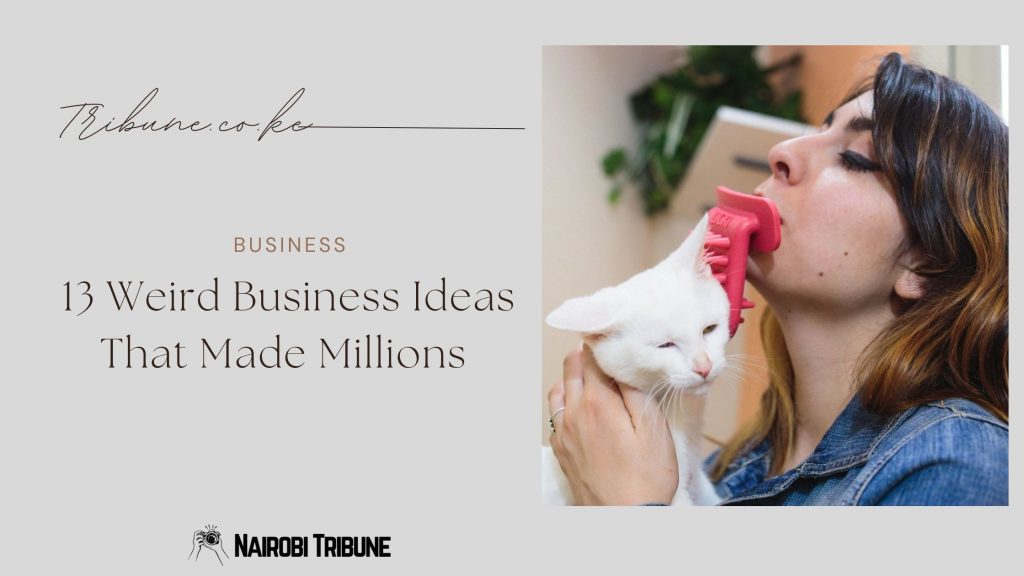Entrepreneurs are often celebrated for their innovative ideas, but sometimes, the most outlandish concepts turn into gold mines.
What if I told you that some of the strangest, most unconventional business ideas have made millions? You might be skeptical, but history is full of examples where the bizarre has led to extraordinary financial success.
In this article, we’ll explore weird business ideas that not only succeeded but made millions. These businesses may leave you scratching your head, while others might inspire you to embrace your wildest entrepreneurial dreams.
Explore the most profitable businesses to start with 100k
Weird Business Ideas That Made Millions
1. Pet Rock
In 1975, Gary Dahl came up with the idea to sell ordinary rocks as pets. Yes, you read that right—rocks. Packaged in a small box with breathing holes and nestled on a bed of straw, the Pet Rock was marketed as a hassle-free pet.
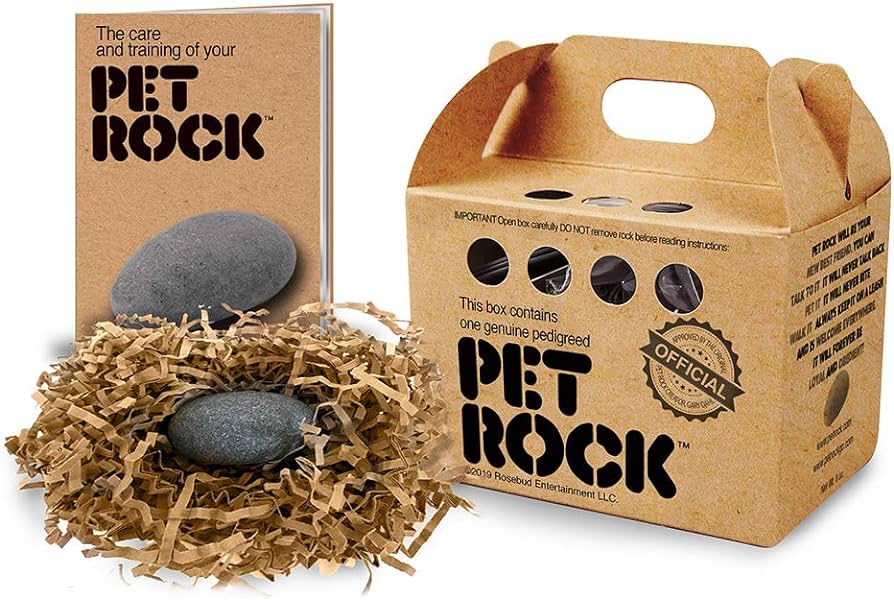
The idea was as simple as it was bizarre, but it tapped into the humor of the time, and soon, Pet Rocks became a cultural phenomenon. The product sold for $3.95 each, and within six months, Dahl had sold over 1.5 million Pet Rocks, making him a millionaire.
The genius of the Pet Rock lay in its simplicity and low production cost. There were no feeding schedules, no messes to clean up, and no vet bills. It was the perfect “pet” for those who wanted the novelty without the responsibility.
While the craze eventually died down, the Pet Rock remains a classic example of how a seemingly absurd idea can turn into a lucrative business.

2. The Million Dollar Homepage
In 2005, Alex Tew, a 21-year-old student from England, needed a way to pay for his university education. He came up with the idea of creating a website with one million pixels and selling each pixel for $1.
The website, aptly named The Million Dollar Homepage, allowed businesses and individuals to buy pixels that linked to their own websites or displayed an image or advertisement.
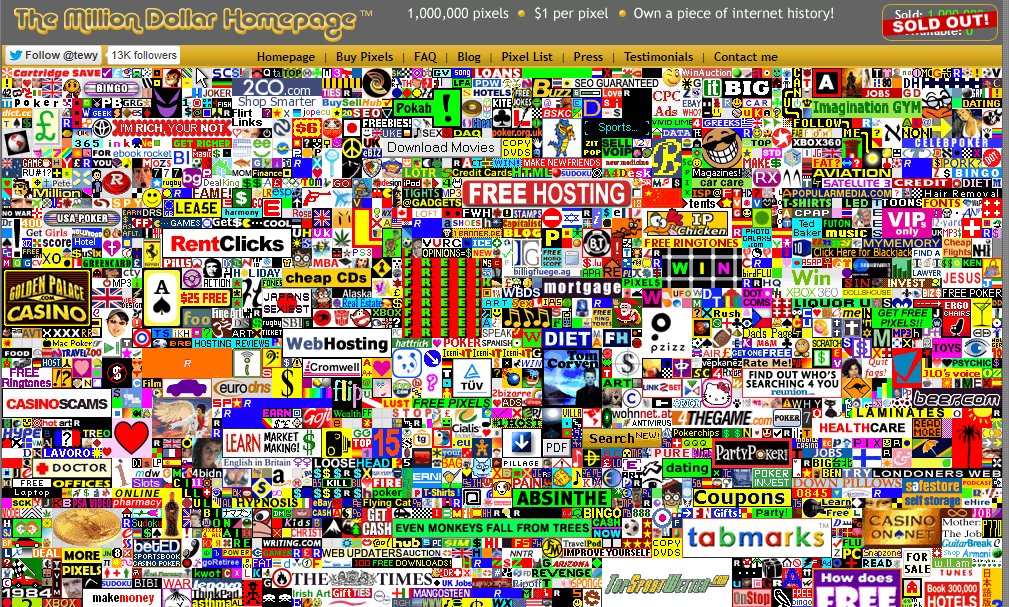
What started as a simple idea quickly went viral. Within five months, Tew had sold all one million pixels, earning exactly $1 million. The success of The Million Dollar Homepage sparked numerous copycat websites, but none achieved the same level of success.
Tew’s ingenious idea proved that even the most unconventional concepts can capture the imagination of the public and generate substantial income.
Learn how to start an online business in Kenya
3. I Want to Draw a Cat for You
Steve Gadlin had a unique talent—drawing simple, stick-figure cats. In 2011, he turned this quirky skill into a business called “I Want to Draw a Cat for You.” For $9.95, customers could request a custom cat drawing with a personalized message. Gadlin’s drawings were intentionally rudimentary, adding to their charm and appeal.

The business gained significant attention when Gadlin appeared on the TV show “Shark Tank,” where he secured a $25,000 investment from Mark Cuban. The exposure led to a surge in orders, and Gadlin went on to sell over 18,000 cat drawings, earning more than $200,000.
What started as a whimsical idea became a thriving business, proving that even the most niche talents can be monetized with the right approach.
4. Rent-A-Chicken
For those who’ve dreamed of farm life but aren’t ready to commit, Rent-A-Chicken offers the perfect solution.
This business, started by Leslie Suitor and her husband, allows customers to rent a pair of egg-laying hens, a coop, and all necessary supplies for a few months. The idea is to give people a taste of backyard chicken farming without a long-term commitment.

The concept has proven wildly successful, especially among urban dwellers who want to experience sustainable living. The business model is flexible, with options for customers to adopt the chickens permanently if they decide they’re ready for the full-time responsibility.
Rent-A-Chicken has expanded across the United States and Canada, proving that even unconventional rental services can find a niche market and thrive.
5. Doggles
Doggles are sunglasses designed specifically for dogs. Yes, you read that correctly—sunglasses for dogs. The idea came about when Roni Di Lullo noticed that her dog was squinting in the sunlight. She created a prototype for dog sunglasses and quickly realized there was a market for such a product.
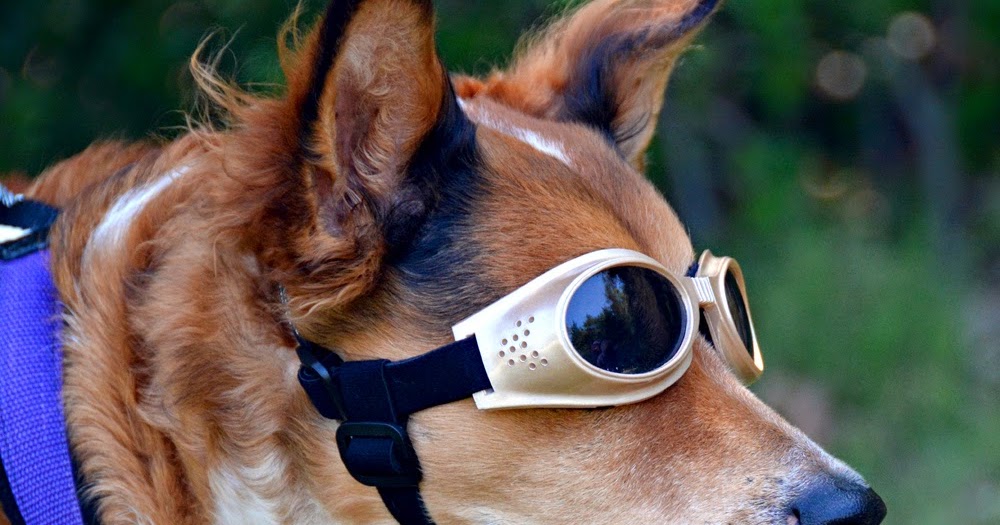
Doggles are not just a novelty item; they serve a practical purpose by protecting dogs’ eyes from harmful UV rays and debris. The product has gained popularity among pet owners, and Doggles are now sold in pet stores around the world.
The success of Doggles illustrates how a simple observation can lead to a multimillion-dollar business by addressing a niche need in the market.
6. The Psychic Vampire Repellent
Goop, the wellness brand founded by actress Gwyneth Paltrow, is known for its controversial and often bizarre products.
One of the strangest items in their catalog is the Psychic Vampire Repellent, a spray designed to protect users from negative energy and “psychic vampires”—people who drain your emotional energy.
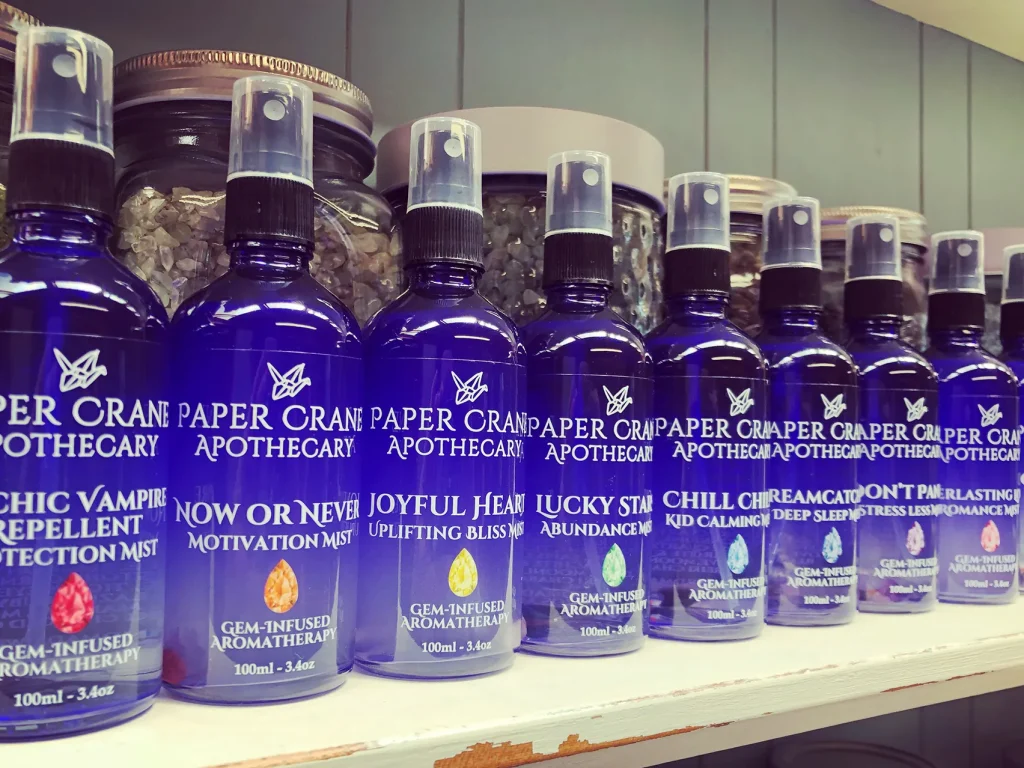
The product, which sells for $30 a bottle, is essentially a blend of essential oils and “gem elixirs.” Despite the skepticism it has received, the Psychic Vampire Repellent has been a commercial success, selling thousands of units. This product highlights the power of branding and the willingness of consumers to buy into unique, albeit strange, wellness trends.
7. The Pet Butler
The Pet Butler is a service that picks up dog poop from customers’ yards. While it may seem like an unglamorous job, the business has grown into a nationwide franchise, with dozens of locations across the United States.

Founded by Matt “Red” Boswell, The Pet Butler started as a simple idea to make money while providing a valuable service to pet owners. The business has proven to be highly profitable, as more people are willing to pay for the convenience of not having to deal with their pets’ waste.
The Pet Butler has transformed an unpleasant task into a thriving business, showing that even the dirtiest jobs can lead to clean profits.
Related: Best way to invest 100k and earn monthly returns
8. Ship Your Enemies Glitter
In 2015, Mathew Carpenter launched a website called Ship Your Enemies Glitter, offering exactly what the name suggests.
For $9.99, customers could anonymously send an envelope filled with glitter to someone they disliked. The glitter would be loose and difficult to clean up, creating a messy and annoying surprise for the recipient.

The website went viral almost immediately, receiving thousands of orders within the first 24 hours. Overwhelmed by the demand, Carpenter sold the business for $85,000 just two weeks after launching it.
The success of Ship Your Enemies Glitter demonstrates how a simple, mischievous idea can capture the public’s imagination and turn a quick profit.
9. Santa Mail
Santa Mail is a business that allows parents to send personalized letters from Santa Claus to their children.
Founded by Byron Reese, the company offers a service where parents can provide details about their children, and Santa Mail will send a customized letter to the child’s address, postmarked from the North Pole.
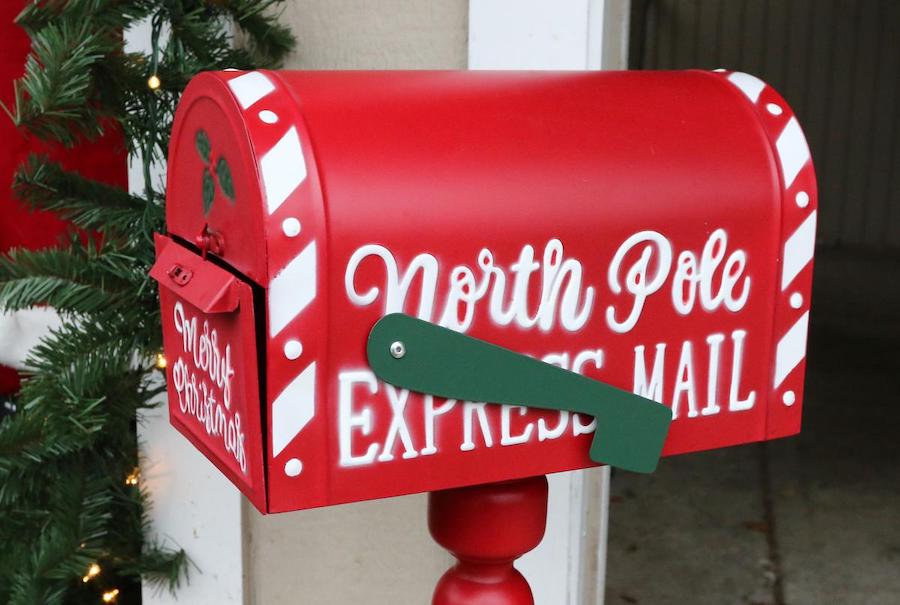
The business has been incredibly successful, with millions of letters sent out since its inception. Santa Mail charges around $10 per letter, making it a highly profitable venture, especially during the holiday season.
The business taps into the magic of Christmas, providing a unique service that brings joy to children and parents alike.
10. The Licki Brush
The Licki Brush is a tongue-shaped brush that allows cat owners to “lick” their cats while grooming them.
The brush, which is held in the mouth, simulates the sensation of a cat’s tongue and is meant to strengthen the bond between the owner and their pet. The idea was created by a company called PDX Pet Design, which launched the product on Kickstarter.
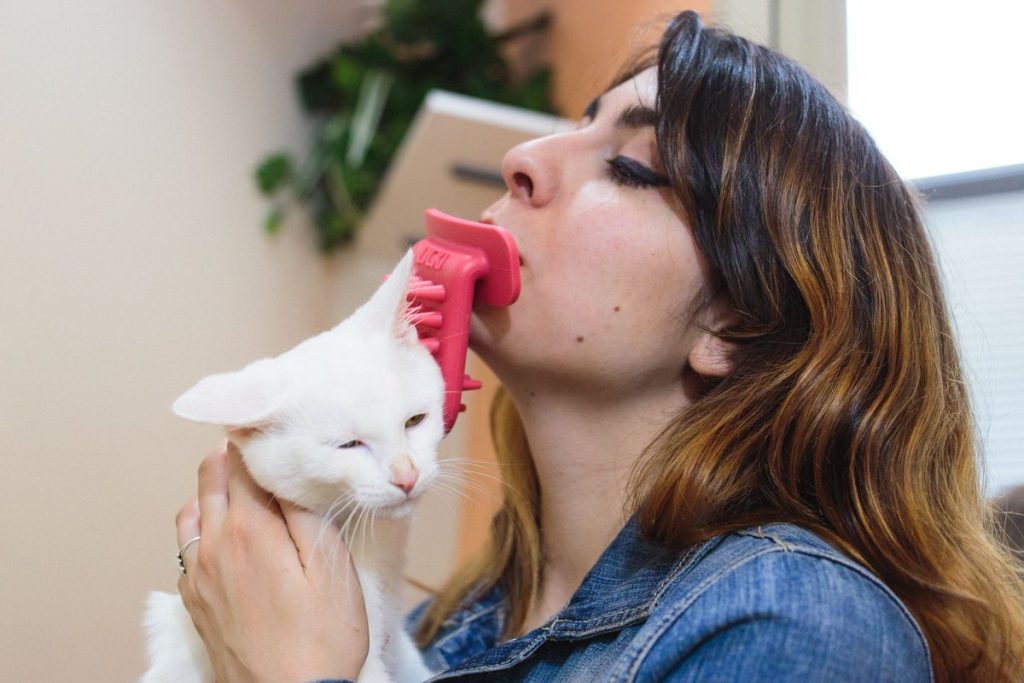
Despite its odd concept, the Licki Brush garnered significant attention and raised over $52,000 on Kickstarter. The product has since been featured in various media outlets and has developed a cult following among cat enthusiasts.
11. Belly Button Lint Brush
In 2000, a man named Denny Siegel invented the Belly Button Lint Brush, a tiny brush specifically designed to remove lint from your belly button.
The product was meant to be a gag gift, but it surprisingly gained a lot of attention and even won the Ig Nobel Prize, a parody of the Nobel Prize that honors unusual or trivial achievements.

While the Belly Button Lint Brush didn’t make Siegel a millionaire, it did generate significant media coverage and sales, proving that even the most ridiculous ideas can capture the public’s interest and turn a profit. The product’s success highlights how humor and novelty can be powerful tools in business.
12. The Potato Parcel
The Potato Parcel is a service that allows customers to send messages written on potatoes to friends, family, or even enemies. The business was founded by Alex Craig, who saw the potential in combining the novelty of sending a potato with the surprise of receiving a personalized message on it.

The Potato Parcel quickly gained popularity, and Craig appeared on “Shark Tank,” where he secured a $50,000 investment. The business has since expanded, offering various potato-related products and earning over $200,000 in revenue.
The Potato Parcel is enough proof that with a little creativity, even the most mundane objects can be turned into a profitable business. The idea of sending a message on a potato is quirky and humorous, making it a perfect gift for people who appreciate unconventional surprises.
13. Invisible Boyfriend/Girlfriend
Invisible Boyfriend and Invisible Girlfriend are services that allow users to create a fictional partner, complete with text messages, voicemails, and even a backstory.
The idea was born out of a hackathon and quickly gained traction as a way for people to avoid uncomfortable social situations or just have fun pretending they were in a relationship.

Users could customize their fake partner by choosing their name, personality traits, and even the story of how they met. The service provided a sense of companionship or helped users fend off unwanted relationship questions from nosy family members.
Despite its odd premise, the business attracted a significant number of users, proving that there’s a market for services that cater to people’s social needs in unconventional ways.
Conclusion
What might seem bizarre, trivial, or downright ridiculous to one person can be a million-dollar idea to another. These businesses not only made millions but also challenged conventional wisdom about what can be profitable.
From selling pet rocks to creating imaginary relationships, these entrepreneurs took risks on ideas that most people would have dismissed as foolish. Whether you’re an aspiring entrepreneur or simply curious about the world of business, these stories demonstrate that thinking outside the box can lead to extraordinary success.
So, the next time you come across a weird idea, don’t be so quick to dismiss it—it might just be the next big thing.


